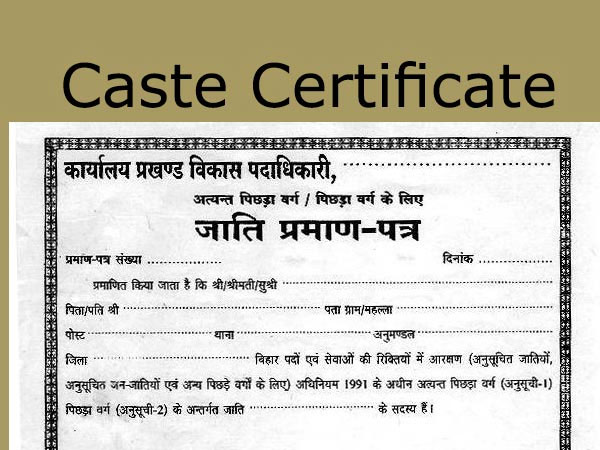
Supreme Court Safeguards MBBS Degree Despite Cancelled ST Certificate, Bars Future Quota Benefits
Court Balances Equity and Justice, Says Completed Medical Education Cannot Be Nullified
Ruling Protects Student’s Career but Restricts Use of ST Category in Future Admissions or Jobs
By Our Legal Correspondent
New Delhi: November 23, 2025:
In a landmark judgment, the Supreme Court of India has ruled that the MBBS degree of a medical student whose Scheduled Tribe (ST) certificate was cancelled must be protected, as his education had already been completed during the pendency of proceedings. The Court emphasized that nullifying the degree would waste years of medical training, which is against the larger public interest.
Also Read: Allahabad High Court Upholds AO’s Decision: ₹122.31 Lakh Cash Deposits Treated as Business Sales
At the same time, the Court made it clear that the student cannot claim any future benefits under the ST category, striking a balance between protecting individual careers and preventing misuse of caste-based reservations.
Background of the Case
The case involved a student who had secured admission to an MBBS course under the Scheduled Tribe quota, claiming to belong to the Mannervarlu tribe. His caste certificate was later challenged before the Scrutiny Committee, which invalidated it. The Bombay High Court upheld the Scrutiny Committee’s decision, leading to an appeal before the Supreme Court.
By the time the matter reached the apex court, the student had already completed his MBBS degree. The question before the Court was whether the cancellation of his ST certificate should also invalidate his medical education.
Also Read: Supreme Court Puts Chartered Accountants on Par with Advocates for ITAT Appointments
Court’s Observations
The Supreme Court bench comprising Chief Justice of India B.R. Gavai and Justice Vijay Bishnoi made several important observations:
- Education cannot go waste: The Court noted that the student had already completed his MBBS course, and cancelling his degree would waste years of medical education.
- No future ST benefits: While protecting the degree, the Court barred the student from claiming any future benefits under the ST category, including postgraduate admissions or government jobs.
- Equitable balance: The ruling balanced the need to deter fraudulent caste claims with the principle of equity, ensuring that the student’s career was not destroyed.
- Public interest: The Court emphasized that medical education is a national resource and wasting it would harm society at large.
Also Read: Delhi High Court: Senior Citizens Can Seek Eviction Without Proving Ill-Treatment Under 2007 Act
Also Read: ED Attaches ₹108 Crore Gurugram Property of Vatika in Builder-Investor Fraud Case
Broader Context: Fake Caste Certificates and Education
The issue of fraudulent caste certificates has been a recurring challenge in India. Several students have been found to have secured admissions under reserved categories without genuine eligibility. Courts have often faced the dilemma of balancing punishment for fraud with protection of completed education.
Recent precedents include:
- Supreme Court (August 2025): Regularized the MBBS degree of a student found ineligible under the ST quota but imposed a fine of ₹5 lakh on her father for concealing past rejections.
- Media Report (September 2025): The Court upheld MBBS admission of another student later found ineligible, noting that she had already completed her degree and internship.
- Earlier rulings: Courts have consistently held that once education is completed, degrees should not be invalidated, though future benefits under reserved categories must be barred.
Implications of the Ruling
The Supreme Court’s decision has wide-ranging implications:
- Protection for students: Those who complete their education before caste certificate disputes are resolved may retain their degrees.
- Deterrence against fraud: By barring future ST benefits, the Court ensures that fraudulent claims do not continue to yield advantages.
- Public interest focus: The ruling prioritizes the larger societal interest in retaining trained doctors and professionals.
- Policy clarity: The judgment provides guidance for future cases, balancing fairness with deterrence.
Also Read: Delhi High Court Upholds ED’s Expansive Search Powers Under PMLA: Non-Accused Premises Can Be Raided
Also Read: Punjab & Haryana High Court Slams State Over Judges’ Housing: Calls Failure ‘Strange and Shocking’
Expert Opinions
Legal experts and educationists have welcomed the ruling:
- Senior advocates note that the judgment strikes a fair balance between protecting careers and preventing misuse of reservations.
- Medical professionals emphasize that wasting years of medical education would harm society, especially given India’s shortage of doctors.
- Social activists caution that fraudulent caste claims must still be penalized, and authorities must strengthen scrutiny mechanisms to prevent misuse.
Conclusion
The Supreme Court’s ruling protecting the MBBS degree of a student whose ST certificate was cancelled is a landmark in balancing equity, justice, and public interest. By safeguarding the completed education but barring future ST benefits, the Court has ensured that medical training does not go to waste while also deterring fraudulent caste claims.
For students, the message is clear: fraudulent claims will not help in the long run. For society, the ruling ensures that trained doctors remain available to serve, reinforcing the principle that education is a national resource that must not be wasted.
Also Read: Bombay High Court: Court Time Is Not Private Property; False Pleas Will Attract Heavy Costs
Also Read: Hindu Undivided Family: Tax Benefits, Structure, and Compliance Under Income Tax Act, 1961
Also Read: Capital Gains Account Scheme Updated: New Rules Bring Relief for Taxpayers
Also Read: Supreme Court Slams Income Tax Department for Delay in Filing SLPs
Also Read: Supreme Court Sends Officer’s Choice vs Original Choice Trademark Battle to Mediation
Also Read: Supreme Court Cracks Down on Digital Arrest Scams Using Forged Court Documents